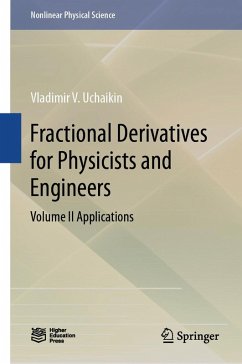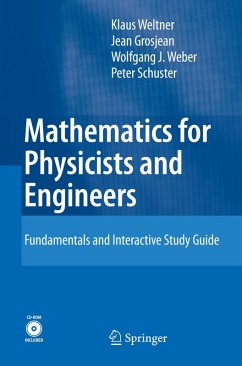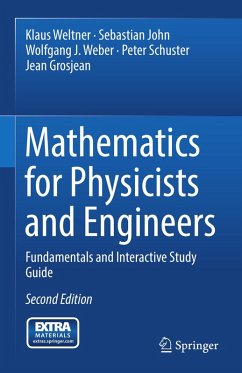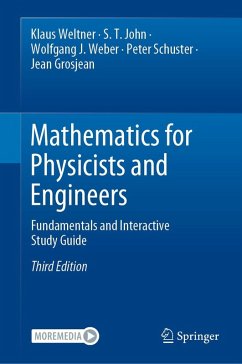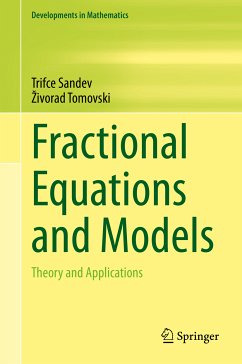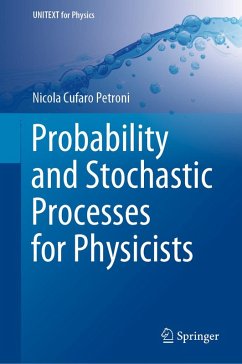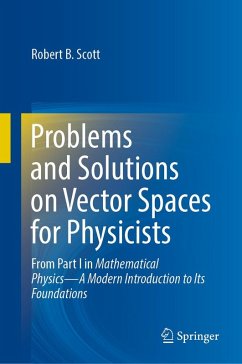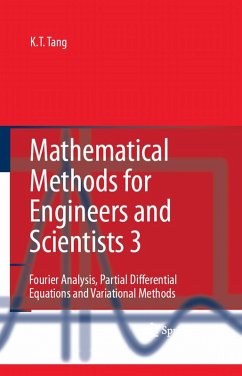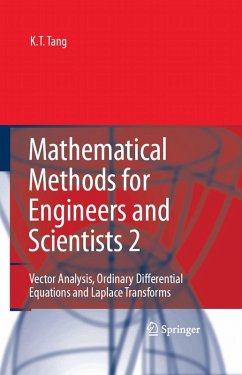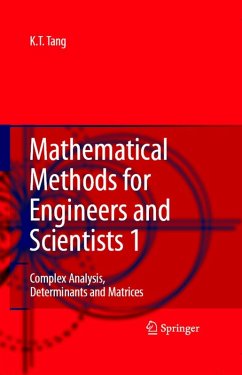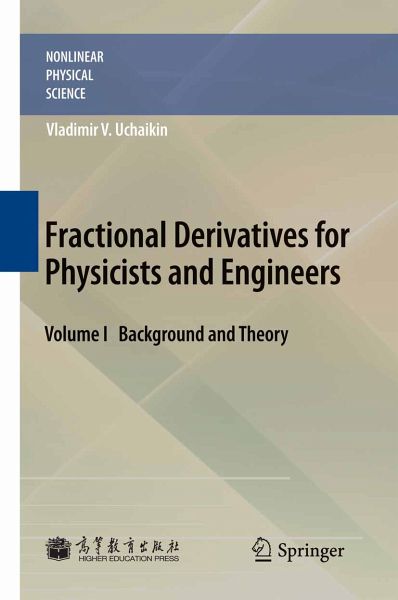
Fractional Derivatives for Physicists and Engineers (eBook, PDF)
Volume I Background and Theory
Versandkostenfrei!
Sofort per Download lieferbar
112,95 €
inkl. MwSt.
Weitere Ausgaben:

PAYBACK Punkte
56 °P sammeln!
The first derivative of a particle coordinate means its velocity, the second means its acceleration, but what does a fractional order derivative mean? Where does it come from, how does it work, where does it lead to? The two-volume book written on high didactic level answers these questions. Fractional Derivatives for Physicists and Engineers- The first volume contains a clear introduction into such a modern branch of analysis as the fractional calculus. The second develops a wide panorama of applications of the fractional calculus to various physical problems. This book recovers new perspecti...
The first derivative of a particle coordinate means its velocity, the second means its acceleration, but what does a fractional order derivative mean? Where does it come from, how does it work, where does it lead to? The two-volume book written on high didactic level answers these questions. Fractional Derivatives for Physicists and Engineers- The first volume contains a clear introduction into such a modern branch of analysis as the fractional calculus. The second develops a wide panorama of applications of the fractional calculus to various physical problems. This book recovers new perspectives in front of the reader dealing with turbulence and semiconductors, plasma and thermodynamics, mechanics and quantum optics, nanophysics and astrophysics.
The book is addressed to students, engineers and physicists, specialists in theory of probability and statistics, in mathematical modeling and numerical simulations, to everybody who doesn't wish to stay apart from the new mathematical methods becoming more and more popular.
Prof. Vladimir V. UCHAIKIN is a known Russian scientist and pedagogue, a Honored Worker of Russian High School, a member of the Russian Academy of Natural Sciences. He is the author of about three hundreds articles and more than a dozen books (mostly in Russian) in Cosmic ray physics, Mathematical physics, Levy stable statistics, Monte Carlo methods with applications to anomalous processes in complex systems of various levels: from quantum dots to the Milky Way galaxy.
The book is addressed to students, engineers and physicists, specialists in theory of probability and statistics, in mathematical modeling and numerical simulations, to everybody who doesn't wish to stay apart from the new mathematical methods becoming more and more popular.
Prof. Vladimir V. UCHAIKIN is a known Russian scientist and pedagogue, a Honored Worker of Russian High School, a member of the Russian Academy of Natural Sciences. He is the author of about three hundreds articles and more than a dozen books (mostly in Russian) in Cosmic ray physics, Mathematical physics, Levy stable statistics, Monte Carlo methods with applications to anomalous processes in complex systems of various levels: from quantum dots to the Milky Way galaxy.
Dieser Download kann aus rechtlichen Gründen nur mit Rechnungsadresse in A, B, BG, CY, CZ, D, DK, EW, E, FIN, F, GR, HR, H, IRL, I, LT, L, LR, M, NL, PL, P, R, S, SLO, SK ausgeliefert werden.




